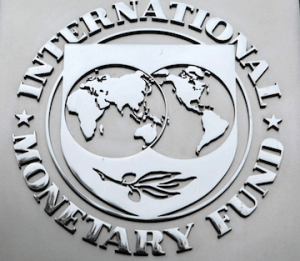Ghana government removes 50,000 ghost names from payroll – IMF
 The Ghana government, according to the International Monetary Fund (IMF) has removed 50,000 ‘ghost names’ from its payroll in response to correcting persistent weaknesses in fiscal management.
The Ghana government, according to the International Monetary Fund (IMF) has removed 50,000 ‘ghost names’ from its payroll in response to correcting persistent weaknesses in fiscal management.
The wage bill to GDP was 8.3 percent in 2015.
The IMF in a statement after concluding its fourth review of Ghana’s Extended Credit Facility (ECF) noted among others that the new government is taking initial promising steps to establish fiscal discipline, but admitted that more is required to be done by the government to resolve the country’s long standing economic challenges. Officials of the Fund were in Ghana from April 3 to 13, 2017.
In a press statement of the mission, the IMF called for more accountability and transparency in the energy sector.
By the end of 2016, the country’s energy sector was burdened with a $2.4 billion debt. The country also recorded the lowest growth ever in more than two decades – GDP was 3.6 per cent by the end of 2016.
According to the IMF, the government is undertaking an audit of unpaid bills as of end-2016, and efforts to limit earmarking were codified in recently enacted legislation.
“The government has also removed some 50,000 persons from its payroll, reflecting the enforcement of biometric registration. The Ministry of Finance has also started initiatives to address abuses of tax exemptions and strengthen the Public Financial Management system,” it said.
The IMF held the view that with the new administration having won a strong electoral mandate, “there is scope to pursue the adjustment and reforms needed to restore macroeconomic stability and ‘create prosperity and equal opportunity for all’—which are among the government’s key priorities.”
The IMF reiterated a 6 per cent GDP growth contingent on expected oil production, pointing out the recent sizable foreign exchange inflows, “the government plans to add $700 million to its net reserves in 2017, the largest increase since 2011 when oil production started,” it added.
The Fund also urged more transparency and accountability—especially in the energy sector, indicating that it will help reduce the drain on public resources, tackle inefficiencies, and send a credible signal about the government’s commitment to lasting change.
On April 3, 2015, the IMF Executive Board approved a $918 million credit facility for Ghana
According to the IMF the three-year arrangement under the ECF for Ghana is in support of country’s medium-term economic reform programme, but the country missed all the targets for the programme in 2016. The IMF stated that the sizable fiscal slippage in 2016 (a budget deficit of 8.7 percent of GDP, more than 3 percent of GDP above target) has further undermined debt sustainability and increased Ghana’s reliance on foreign investors to fund its large gross financing needs, with possible pressures on the exchange rate if financing conditions deteriorate.
“Significant unpaid commitments incurred in 2016 (now being audited) and weaknesses in the financial position of state-owned enterprises (SOEs) in the utility sector could give rise to additional spending needs. And while the financial system is overall adequately capitalized, weaknesses in some banks and microfinance institutions could hamper credit growth and investment and create contingent liabilities for the government,” the IMF said.
By Emmanuel K. Dogbevi
